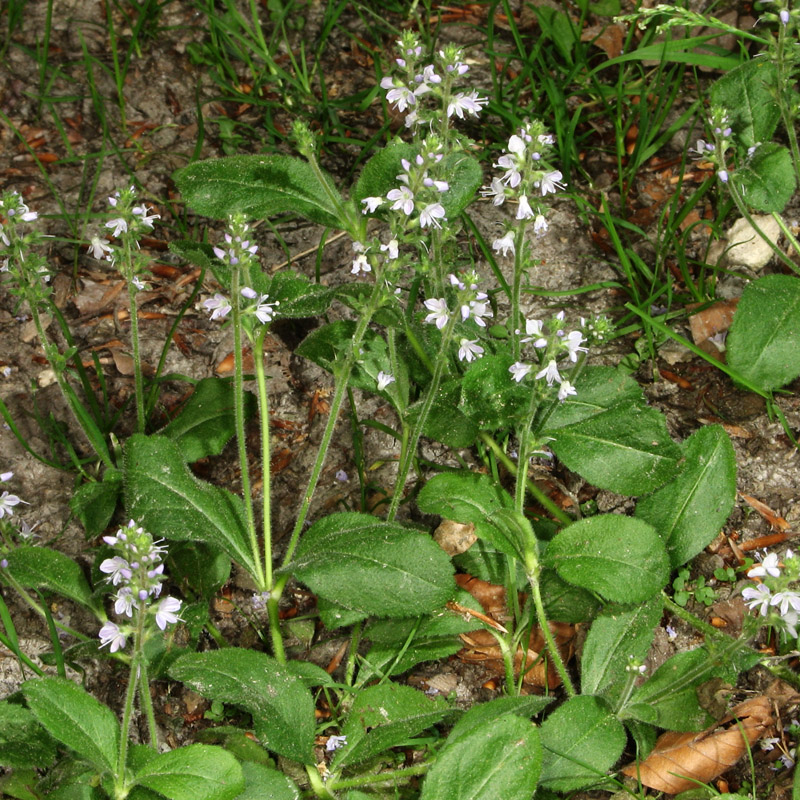Botanical name
Veronica officinalis L.
Family
Plantaginaceae
Common name
Speedwell, Heath speedwell, Common gypsyweed, Ehrenpreis (Germany)
Information about the plant
Speedwell is native to almost all of Europe and Western Asia and has been introduced to North America and New Zealand. It grows like a carpet in sparse, dry forests, on heaths, nutrient-poor grasslands, and along roadsides, even in mountainous regions. In the high mountains, it can reach the high alpine level.
The history of the genus name Veronica is not clear. It is probably a distortion of the Celtic name ‘betonica’ or may be derived from the Latin play on words ‘vera unica medica’ = ‘the true, only remedy’. The species epithet officinalis suggests that it is an old medicinal plant, as the ‘officina’ refers to the salesroom of a pharmacy, and ‘officinalis’ means commonly used in the pharmacy. The fact that the plant was considered to have excellent healing powers is also expressed in the German name “Ehrenpreis”, which translates to ‘honored’ and ‘praised’ for its healing powers.
Speedwell is a perennial plant that sprouts prostrate, rough-haired shoots from a creeping rhizome in spring, with ascending, densely soft-haired side branches and upright inflorescences that grow up to 20 cm high. The leaves are obovate with bluntly crenate margins and are arranged opposite on the stem. The pale lilac flowers are axillary in a densely flowered, racemose inflorescence. Like the calyx, the corolla is 4-toothed and slightly funnel-shaped; the fruit is a triangular capsule. It flowers from June to August.
Medicinally used parts of plants (herbal drug)
The upright above-ground parts harvested and dried at flowering time (Veronicae herba) are used.
Constituents of the herbal drug
Speedwell contains iridoid glycosides, flavonoids, tannins, phenolcarboxylic acids, and triterpene saponins.
Quality of the drug
The quality of Veronicae herba is specified in the German Medicines Codex (DAC).
Medical applications
Recognised medical use
Speedwell has not been evaluated by the HMPC or ESCOP.
In folk medicine, speedwell is used for respiratory complaints, digestive disorders, rheumatic complaints, bladder and kidney problems, as well as a gargle for inflammation of the mouth and throat mucosa.
Traditional use
Speedwell has not yet been classified as a traditional medicinal product (Article 16a of Directive 2001/83/EC).
Herbal drug preparations in finished dosage forms
Cut speedwell herb for making tea.
Dosage
Finished medicinal product: not applicable.
Tea: Drink 1 cup of speedwell tea 2 to 3 times a day.
Preparation of a tea
Pour approx. 150 mL of boiling water over 1.5 g of finely cut speedwell herb and strain after 10 minutes.
Notes
No safety studies are available on the use of speedwell during pregnancy and lactation. The use in children under 12 years of age is not recommended due to a lack of evidence.
Side effects
None known.
Interactions
None known.


